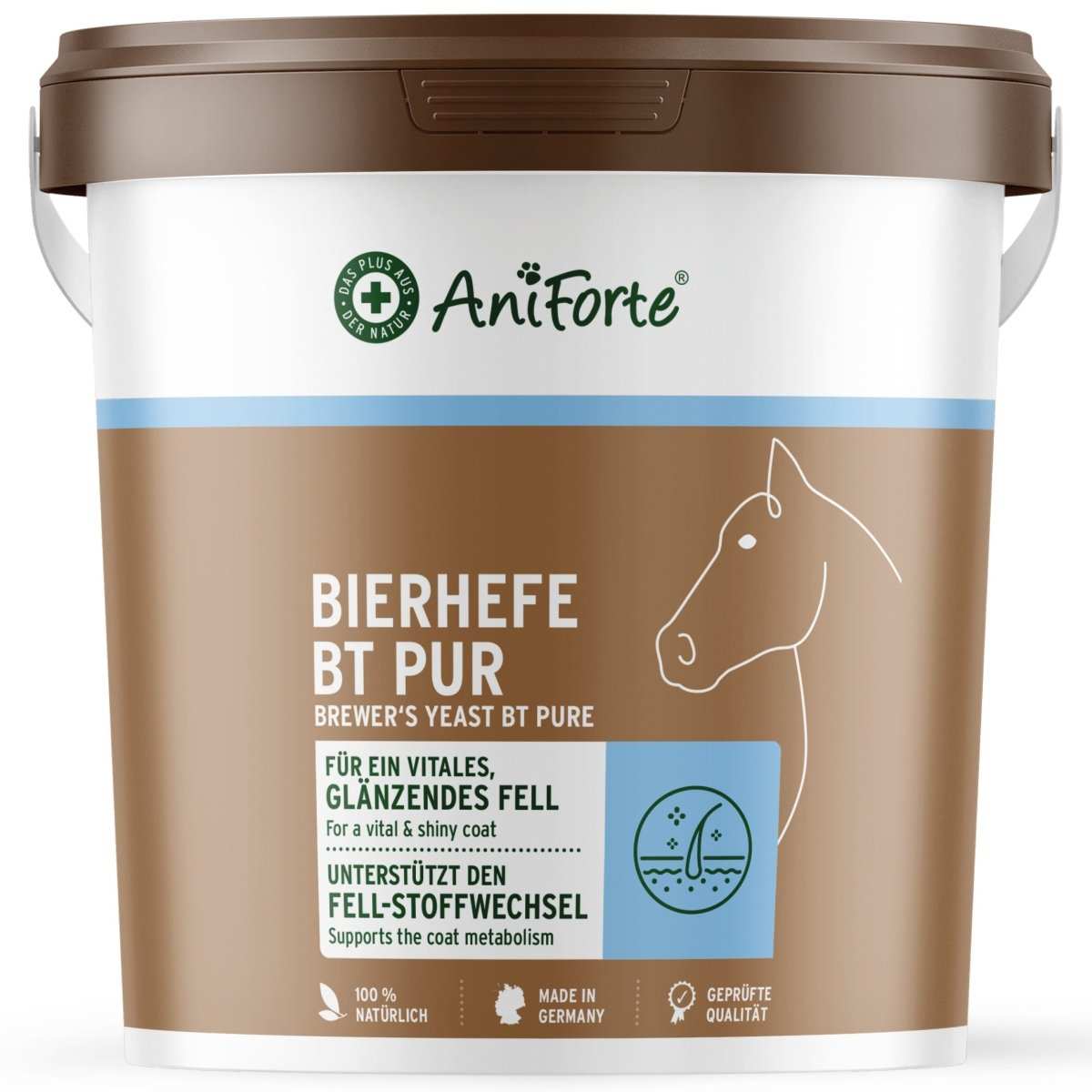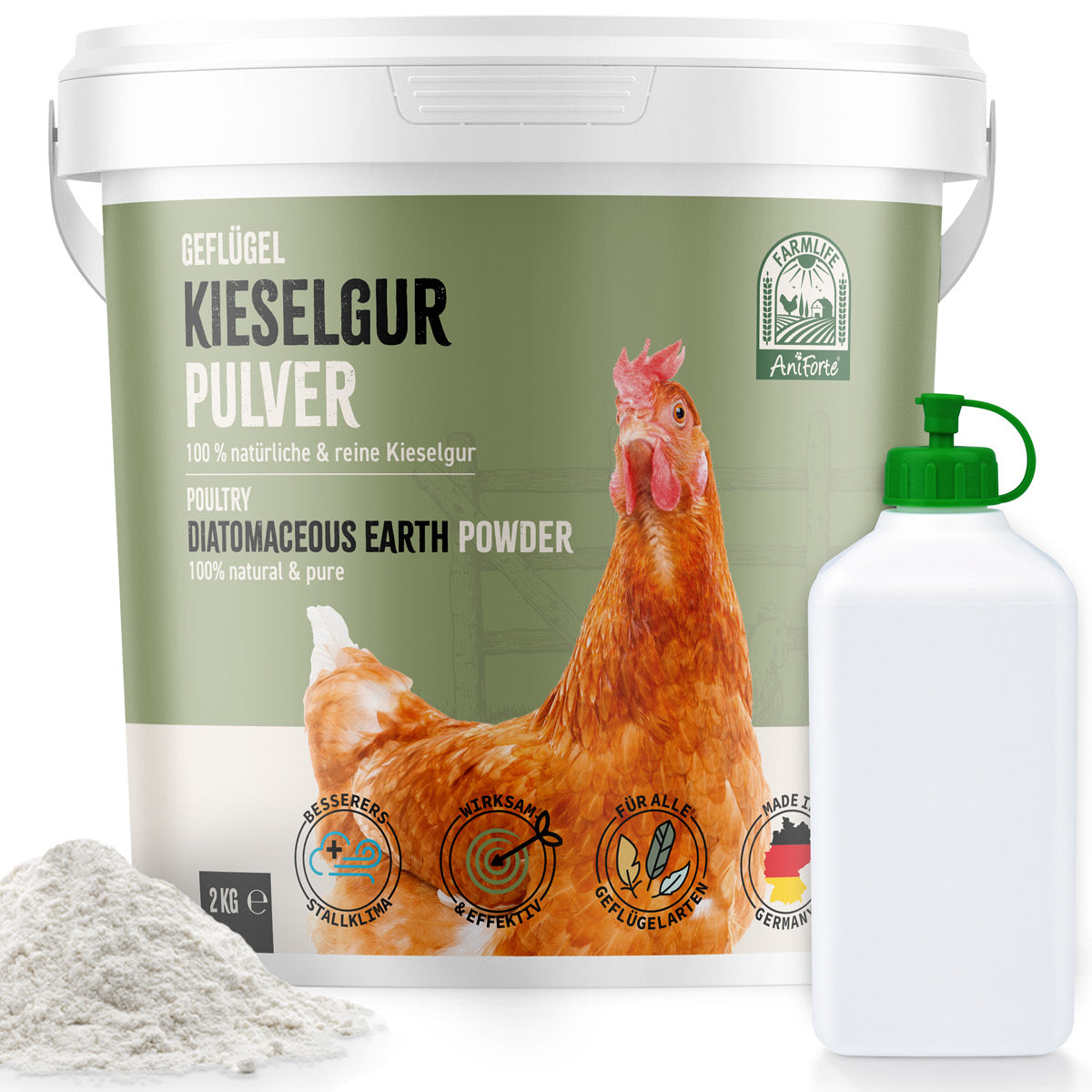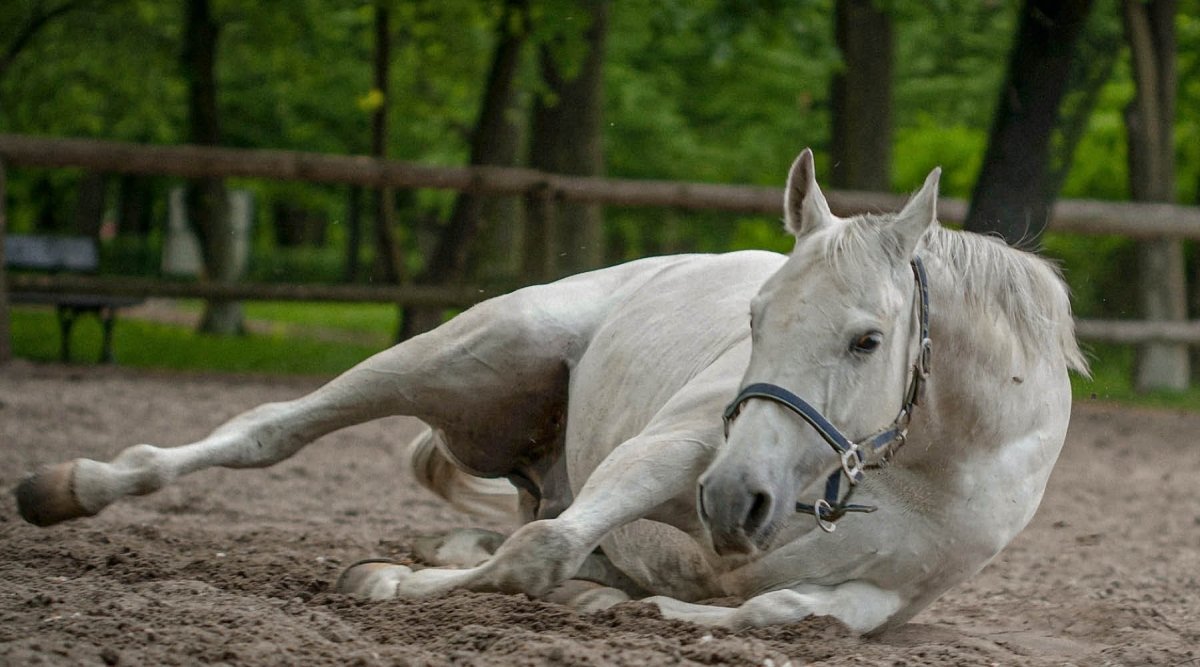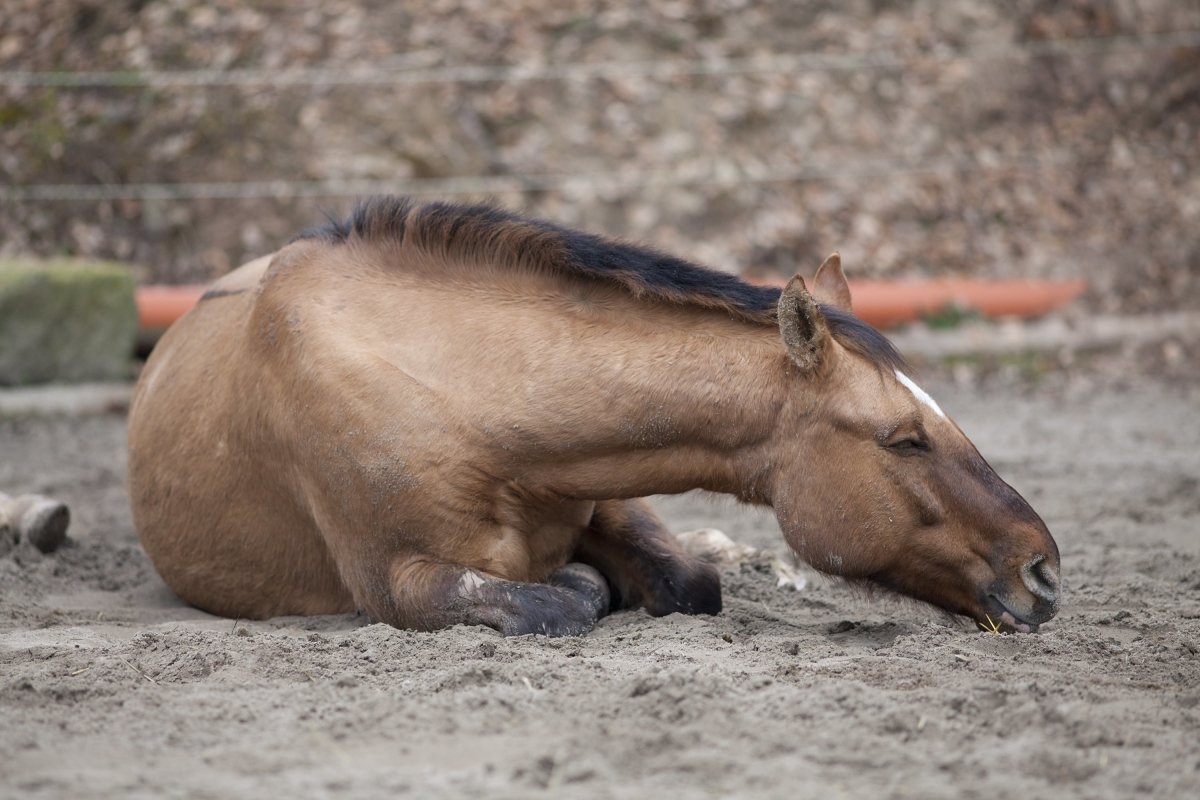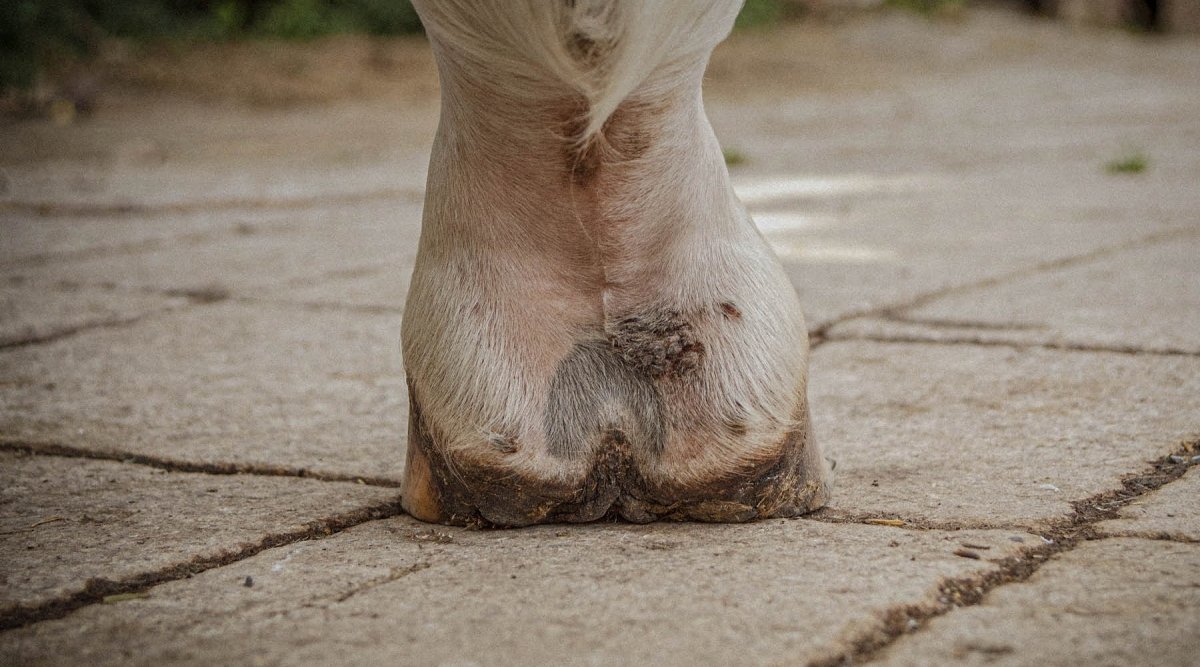Colic in horses occurs more frequently in the winter months. Lack of exercise and laziness to drink are just some of the causes that can trigger colic. We'll tell you how to recognize colic at an early stage and even prevent it from developing.
What is colic?
Horse owners are particularly sensitive when it comes to colic - and not without reason. Colic is one of the most common natural causes of death in horses.
Contrary to popular belief, however, colic is not a disease, but a collection of symptoms, e.g. pain or discomfort in the abdomen.
Colic in horses can progress in very different ways and also have different causes. Colic usually occurs in the animal's gastrointestinal tract, but other organs can also be affected.
Organs that can be affected
- Gastrointestinal tract
- Kidney
- Bile ducts
However, the pain can also spread to other organs and tissues.
A quick, professional examination of the horse can alleviate your animal's suffering and even save its life. It used to be the case that horses were not allowed to lie down if colic was suspected. This is now outdated. Make sure that your animal can lie down on soft ground and has enough space around it. This can help prevent injuries and being stuck.
How do you recognize symptoms of colic in horses?
The symptoms of equine colic are very unspecific. This makes it difficult to classify the signs at an early stage. Horse owners who know their animals very well have an advantage here. If your horse shows changes in its behavior, it may already be the first sign of pain and discomfort.

Questions about behavioral changes:
- How much does your horse eat and drink?
- How much does the animal defecate per day?
- What is the consistency of the droppings?
- Is the horse lethargic? Does it show a change in activity and behavior?
- How long and at what time of day does the animal lie down?
Equine colic due to a change in weather - winter weather as the cause
If the change to fresh pasture grass with lots of fructan is the risk of colic in spring, a diet rich in crude fiber due to too much straw and a lack of exercise are the main causes in autumn.
The change from pasture to paddock or stable inevitably leads to less activity in the animals. The lack of exercise has a negative impact on metabolism and digestion, and if other factors such as stress are added to this, colic is very likely to occur in horses.

Horses also drink significantly less in winter. This is sometimes due to the cold water, which is not to their liking - another factor for sluggish digestion, which favors constipation colic.
Mud, slush and sand are also common causes of equine colic. Dirt particles are increasingly ingested with the feed in fall and winter and can be deposited in the animal's intestines. This also allows bacteria to enter the organism and weaken the animal from the inside.
How can you prevent colic?
You can significantly reduce the risk of colic by keeping and feeding your horse correctly. You should avoid the following mistakes with your horse:
Avoid feeding errors
- Too little roughage - horses should have constant access to roughage such as hay, haylage or hay cobs
- Avoid too much concentrated feed
- Ensure flawless feed quality (free of dust, mold and rot)
- Provide the horse with small amounts of feed (at least 3 times throughout the day)
- Do not allow feeding breaks that are too long (4 hours or more)
- Pay attention to pasture management
- Feed intake without sand, mud etc. - Make sure the bedding is clean
- Feed psyllium seeds - they get the intestinal activity moving
- Mix in herbs that stimulate the gastrointestinal tract
- Change the feed slowly when changing feed
- Encourage lazy horses to drink - Ensure good water quality, use buckets/tubs rather than self-drinkers, temporarily mix some apple juice into the water
Balanced exercise
- Avoid boredom - too little activity makes the intestines sluggish and digestion sluggish
- Too much work has the opposite effect - many competitions, frequent transportation and changes of environment can lead to stress colic in sensitive horses
Check teeth
- Horses also need regular visits to the dentist. Horse teeth grow for a lifetime and need to be worn down by the feed. However, the growth is often greater than the abrasion. This can result in sharp edges, which leads to inadequate feed crushing. If the horse eats too large feed components, gas-forming processes can develop in the intestine, resulting in colic.
Visit to the osteopath
- The horse's internal organs are attached to the spine, and problems with the organs and vertebral misalignments can be mutually dependent. An osteopath can use fascia therapy to check the position and mobility of the organs and intervene at an early stage. Fasciae run through almost the entire body and can disrupt the organs through adhesions, for example.
Differentiating between colic in horses
There are different types of colic and also different causes. Knowing your horse and being able to classify the symptoms can save the animal's life. This is because the horse's gastrointestinal tract is very sensitive and almost any part of the digestive tract can be affected by colic. The following colic symptoms can occur in horses:
Gas colic in horses
You can recognize gas colic in horses in particular by increased flatulence, a significantly larger abdominal circumference and increased intestinal noises. Flatulent and/or poor quality feed that is contaminated with fungi or bacteria overstimulates the intestines and leads to gas formation.
Constipation colic in horses
Constipation colic occurs in the small intestine, among other places, and is often manifested by thin and sluggish stools. Possible causes are incorrect feeding, insufficient water intake, tumors and insufficient intestinal peristalsis. However, this type of colic is rather rare in horses.
Sand colic in horses
Winter is the ideal time for sand colic. The animal ingests dirt particles and sand from muddy straw or eaten pasture, these are deposited in the intestine and are not transported any further Too large quantities of ingested sand or soil can be deposited in the intestine and impair digestive activity. Therefore, make sure that your horse has access to clean and dry feed, especially in winter. Also avoid grazed pastures if the animal grazes alone for a longer period of time.
Cramp colic in horses
Spasmodic colic in horses is spastic colic that occurs as a result of digestive problems. Increased intestinal activity leads to the animal experiencing severe pain and cramping. Feeding errors, stress and extreme worm infestation are common triggers of spasmodic colic.
Intestinal displacement
The horse's intestines are held in place by ligaments, some of which are very long. This can cause the intestine to shift or rotate and no longer lie in its "normal" position. This blocks the path for the food chyme and also restricts blood flow to the intestine. If the intestinal displacement is not corrected, the chyme begins to ferment and gas formation increases. The intestine becomes bloated and the blood circulation also deteriorates. Unfortunately, this can lead to this section of the intestine dying off, making an operation necessary.
The right feeding after colic
In the first few days after colic, the horse's feeding and husbandry must be adjusted. The change depends on the cause and treatment of the colic.
As a rule, the animal should be fed a light diet. It is also important to avoid concentrated feed and straw and to avoid treats. Feed lots of good hay instead. Shredded feed components, mash and soaked hay cobs also relieve the animal's digestive tract. Also pay particular attention to your horse's drinking habits - a sufficient water intake is essential at this time.
Our veterinary practitioners recommend supplementing the horse's gastrointestinal tract with mucilage-forming feed. Psyllium seeds and psyllium husks have a very high swelling power and mucilage formation. These properties promote the intestine's ability to move and support normal activity. In addition, a protective mucus layer forms on the intestinal wall.
Other additives that have proven effective after colic are feed oils for horses to improve general well-being and dried brewer's yeast. Herbal mixtures that relieve flatulence and cramps also stimulate the animal's intestines and aid digestion.

